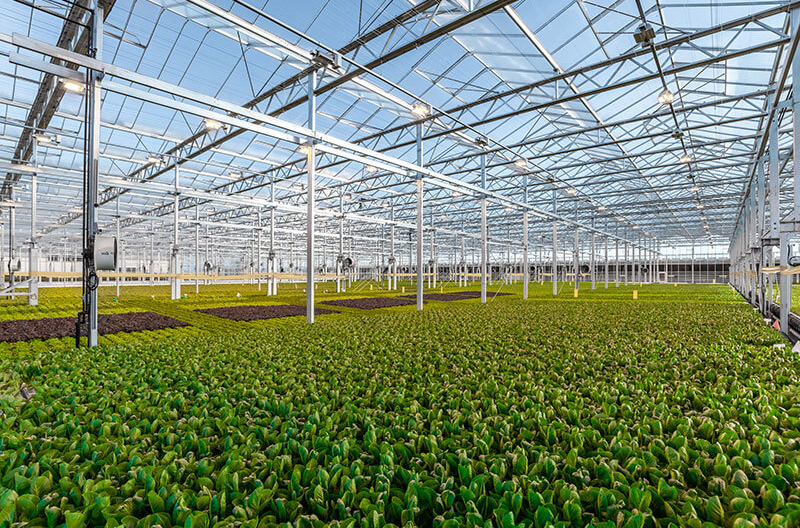Indoor farming pioneer Gotham Greens has opened the first phase of its 10-acre hydroponic greenhouse near the University of California-Davis campus. With this national greenhouse expansion, it will operate the nation’s largest network of high-tech hydroponic greenhouses spanning nine facilities in six U.S. states.
The company’s sustainable farming practices allows Gotham Greens to grow salad greens and herbs year-round while conserving 300 acres and 270 million gallons of water annually compared to conventional farming practices.
Gotham Greens’ irrigation techniques use less than one gallon of water to grow a head of lettuce compared with up to 10 gallons used in conventional open-field farming.
The company’s first greenhouse on the West Coast joins the brand’s existing network of hydroponic greenhouses located in New York, Illinois, Rhode Island, Maryland and Colorado and enables accelerated growth for Gotham Greens on both a regional and national scale.
Gotham Greens products are available at approximately 3,000 retail locations across more than 45 states. Consumers can purchase Gotham Greens’ line of salad greens, herbs, dressings, dips and cooking sauces throughout California, including at Whole Foods Market, Raley’s, Sprouts Farmers Market, Good Eggs and Berkeley Bowl, among others.

The expansion bolsters Gotham Greens’ strategic partnership with one of the highest-ranked agricultural research centers in the world, University of California Agriculture and Natural Resources and UC Davis College of Agricultural and Environmental Sciences. The greenhouse facility, located in Solano County, will foster collaboration on research and innovation focused on advancing the science, workforce, technology and profitability of the indoor farming industry.
“California is the center of North America’s leafy greens production, where water shortages, wildfires and other results of climate change are straining critical agricultural resources. By putting down roots in California, we aspire to be a part of the agricultural industry’s solution to the increasingly visible impacts of climate change,” said Viraj Puri, co-founder and CEO of Gotham Greens. “Our newest greenhouse facility in Northern California is strategically located to service retailers and foodservice providers throughout the region more quickly while conserving precious resources, including land and water. We are excited to continue to expand our footprint, work in partnership with UC Davis and innovate with the agricultural industry in California for a better food system.”
Gotham Greens’ California greenhouse facility opening coincides with the company’s achievement of Certified B Corp status – where it joins the ranks of vetted, environmentally conscious brands. The certification is a milestone in the company’s mission of driving the industry toward a more sustainable food system through industry-leading social and environmental practices.
“Our B Corp certification comes at a pivotal time for Gotham Greens as we celebrate our 10th anniversary, the opening of our California greenhouse and our plans for future growth,” said Jenn Frymark, chief greenhouse officer of Gotham Greens. “The certification will add in additional layers of accountability and transparency for our employees, customers, retail and foodservice partners, and investors as we continue to innovate our food system to build a better future for generations to come.”
As Gotham Greens looks toward the future, the company has announced new and rigorous outcome-based sustainability commitments based on its 2020 baselines, including:
Goal 1: Reduce plastic packaging for leafy greens and herbs by 40 percent by 2024.
Alongside the California opening, Gotham Greens is introducing new lidded film packaging for its salad greens, which reduces plastic packaging for its lettuces by more than 30 percent. The development marks progress toward the company’s goal of reducing plastic packaging for leafy greens and herbs by 40 percent by 2024 and 80 percent by 2030.
Goal 2: Achieve a reduction of 5 percent in electricity use intensity by 2024 and reduce its Scope 1 and 2 greenhouse gas emission intensity by 5 percent by the end of 2024.
Gotham Greens currently relies primarily on renewable electricity sources to power its greenhouse facilities.
For more information, visit gothamgreens.com.

